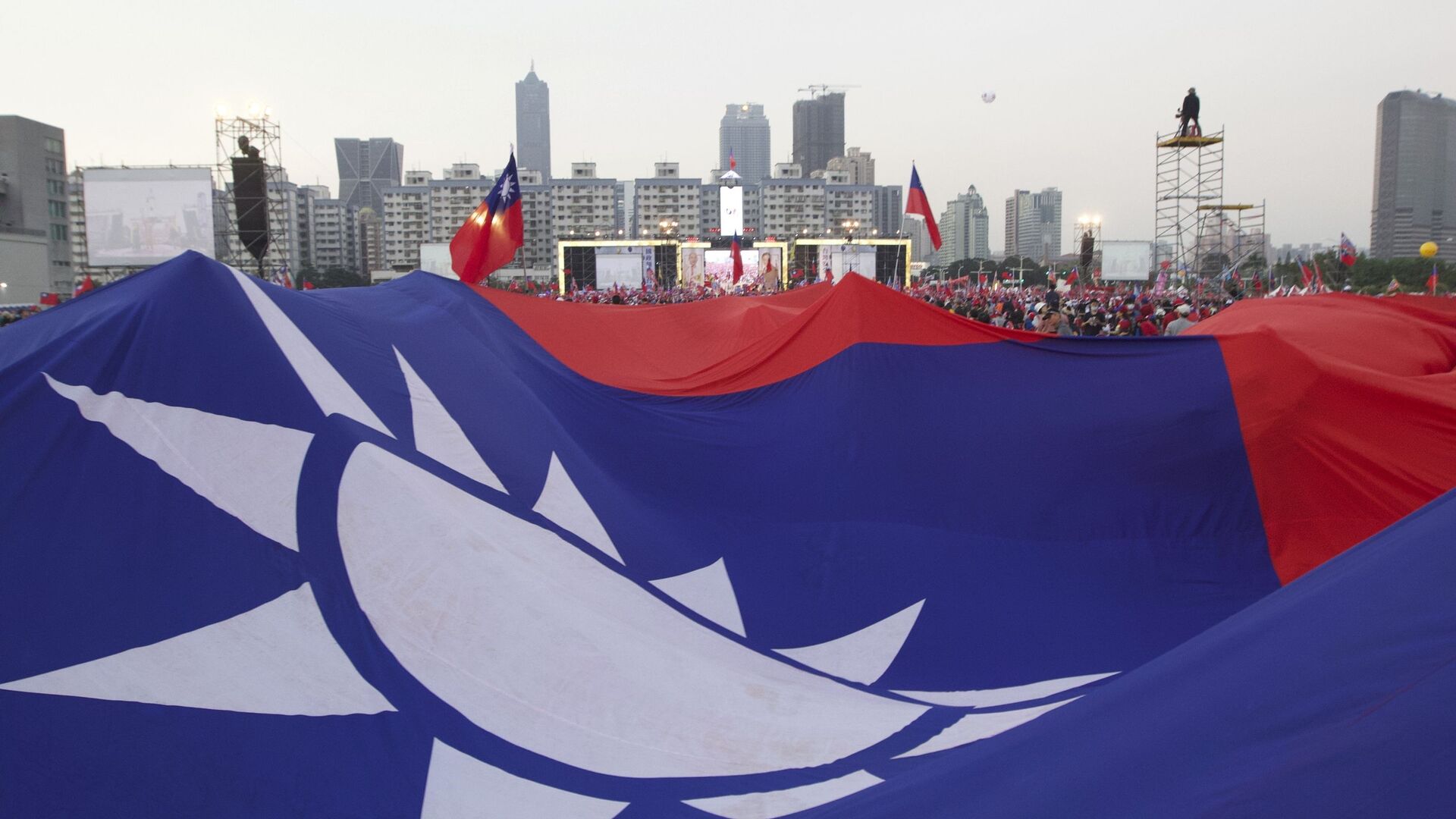‘Matter of Time’: After Nicaragua Switch, Chinese Deputy FM Warns Soon Taiwan Allies ‘Will be Zero’
19:45 GMT 18.01.2022 (Updated: 12:43 GMT 19.06.2023)

© AP Photo / Ng Han Guan
Subscribe
The autonomous island of Taiwan is finding itself with fewer and fewer allies in recent years as nations switch their recognition of the Chinese government from Taipei to Beijing. The most recent shift, last month, was Nicaragua.
“It is a matter of time before Taiwan’s diplomatic allies will be zero,” Chinese vice foreign minister Le Yucheng said on Tuesday at the Macro Situation Annual Forum hosted by Renmin University in Beijing, according to the South China Morning Post.
Last month, Nicaragua switched its recognition from Taipei to Beijing following US and European Union sanctions against Nicaraguan President Daniel Ortega and more than 100 members of his government for allegedly undermining democracy in the country by arresting the masterminds behind deadly riots who had registered as election candidates.
That shift dropped Taiwan’s allies to just 14 - a decline of eight since 2016, when Tsai Ing-wen, a strongly separatist politician, became Taiwan’s president. At the forum, Le called Managua’s move part of “the general trend” and “international justice.”
Others that have switched in that time include Kiribati, the Solomon Islands, the Dominican Republic, El Salvador, Panama, Sao Tome and Principe, and Burkina Faso. A ninth could soon follow, as Honduras’ President-elect, Xiomara Castro, ran on a platform that included ending relations with Taiwan. However, figures in her transition team say such a policy change isn’t likely to be immediate.
That leaves Taiwan with the continued diplomatic support of Belize, Eswatini, Guatemala, Haiti, the Holy See, Honduras, the Marshall Islands, Nauru, Palau, Paraguay, St. Kitts and Nevis, St. Lucia, St. Vincent and the Grenadines, and Tuvalu - all small states, nearly all of which are firmly under the thumb of the United States. Two of them - Palau and the Marshall Islands - are American protectorates which, along with Micronesia, are collectively known as the Freely Associated States.
The government in Taiwan calls itself the Republic of China, and is all that remains of the republican government established after Pu Yi, the last Chinese emperor, abdicated the throne in 1912. The US closely supported the RoC in its fight against Japanese occupation during the Second World War, but the RoC ultimately lost the civil war that followed victory, and the communist Red Army established control over the entire Chinese mainland and founded the People’s Republic of China in Beijing in 1949. However, unable to invade Taiwan, the PRC has been forced to tolerate the RoC rump state’s continued existence, regarding Taiwan as a Chinese province in rebellion.
It took until 1979 before the US switched its recognition of the Chinese government from Taipei to Beijing, following a series of agreements by which Washington recognized the PRC as the legitimate government of all of China and pledged to end its support for the RoC. Despite this, the US continued informal support for Taiwan, selling it weapons and giving it diplomatic cover on the international stage.
At the forum, Le attacked the US hypocrisy. “The United States also keeps saying that it will adhere to the one-China [policy], but in action, it is supporting Taiwan independence, constantly eroding China’s sovereignty … sending military advisers to Taiwan, and shipping advanced weapons to Taiwan,” he said.
Le said Taiwan’s destiny was to reunify with mainland China. He warned that the Taiwanese independence policy was “playing with fire” and called it a “fuse” that should be strongly opposed.

